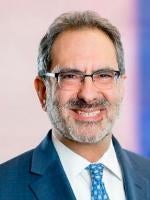2015 was a year of transition for the U.S. Department of Justice (“DOJ”), with the installation of a new Attorney General, Deputy Attorney General, and several other high-level officials. In January 2015, Andrew Weissmann came on board as Chief of the Fraud Section, filling a key role within DOJ’s Criminal Division, and reuniting the leadership of the Enron Task Force. (The task force initially had Leslie R. Caldwell, the current Assistant Attorney General in charge of the Criminal Division, and Mr. Weissmann at its helm). In March 2015, Benjamin R. Mizer became Principal Deputy Assistant Attorney General and Acting Assistant Attorney General in charge of the Civil Division. The reorganization was completed with the installation of Sally Quillian Yates as Deputy Attorney General and, finally, of Loretta E. Lynch as Attorney General, this past spring.
Despite the many officials in transition and the other important law enforcement challenges that the government faced in 2015, based on the cases pursued by DOJ and its partners, health care fraud remains a top enforcement priority. Moreover, there have been policy developments that will impact health care fraud enforcement, as will, we anticipate, DOJ’s new compliance counsel.
On September 9, 2015, DOJ Deputy Attorney General Yates issued a memo reaffirming the government’s commitment to investigating individuals and prosecuting culpable ones, as well as formally directing its prosecutors to prioritize individual accountability when addressing corporate misconduct. Since then, there has been a lively debate regarding the significance of this development and whether it actually represents a change in policy. Time, of course, will be the best judge. In the meantime, here are the basics from the memo, as well as some additional commentary by high-level DOJ officials.
Read the rest of the review here.





 />i
/>i
